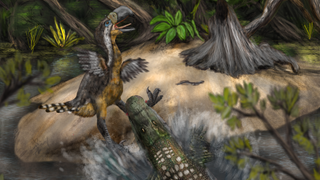
Patrick Pester
Patrick Pester is the trending news writer at Live Science. His work has appeared on other science websites, such as BBC Science Focus and Scientific American. Patrick retrained as a journalist after spending his early career working in zoos and wildlife conservation. He was awarded the Master's Excellence Scholarship to study at Cardiff University where he completed a master's degree in international journalism. He also has a second master's degree in biodiversity, evolution and conservation in action from Middlesex University London. When he isn't writing news, Patrick investigates the sale of human remains.
Latest articles by Patrick Pester
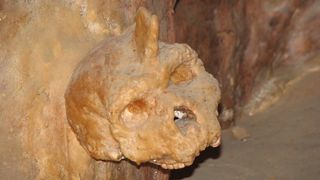
Mysterious 300,000-year-old Greek cave skull was neither human nor Neanderthal, study finds
By Patrick Pester published
Researchers have dated the mysterious skull from Petralona Cave in Greece to 300,000 years ago and concluded that the fossil belonged to an ancient human group that lived alongside Neanderthals.
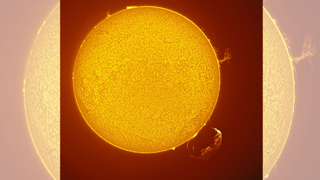
Solar tornado rages on the sun as a giant plasma plume erupts
By Patrick Pester published
There's a giant solar tornado raging on the sun's surface, and a researcher captured it — plus a massive plasma eruption — in one spectacular image.
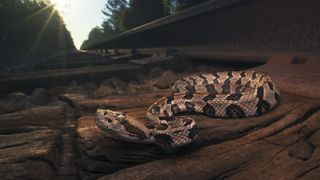
Hiker picks up venomous snake, dies after bite triggers rare allergic reaction, authorities say
By Patrick Pester published
Authorities say a man died after being bitten by a venomous snake in Tennessee. The snake is believed to be a timber rattlesnake, which can have extremely potent venom, but the man likely died due to a rare allergic reaction.
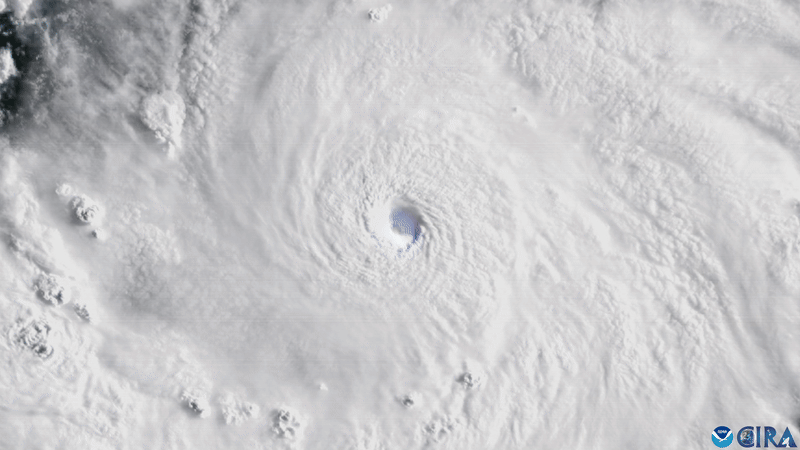
Watch Hurricane Erin reach Category 5 strength in a blaze of lightning
By Patrick Pester published
NOAA's GOES-19 satellite captured images of Hurricane Erin as it developed in the Atlantic and then rapidly strengthened into a Category 5 storm.
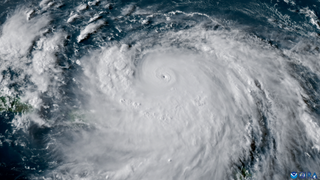
Hurricane Erin could unleash 100-foot waves across the East Coast this week, forecasters warn
By Patrick Pester published
Forecasters expect Hurricane Erin, one of the fastest rapidly intensifying storms in history, to bring flooding and dangerous currents as the Category 4 hurricane travels to the U.S. East Coast this week.

Robots awkwardly race, fight and flop around in China's first World Humanoid Robot Games
By Patrick Pester published
The first World Humanoid Robot Games are underway in China, with robots competing against each other in track and field, soccer, kickboxing and other events.
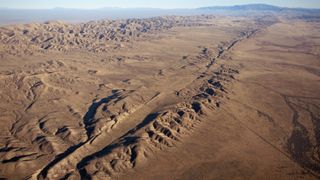
San Andreas fault could unleash an earthquake unlike any seen before, study of deadly Myanmar quake suggests
By Patrick Pester published
A study of March's Myanmar earthquake has found that strike-slip faults don't necessarily repeat past behavior, meaning the San Andreas fault could unleash a bigger quake than any seen before.
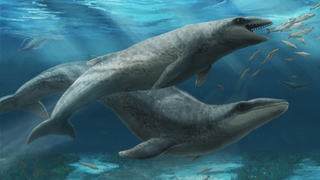
Ancient predatory whale with big eyes and razor-sharp teeth was 'deceptively cute'
By Patrick Pester published
Researchers have unveiled the fossils of a juvenile ancient whale that hunted off ancient Australia with large forward-facing eyes and razor-sharp teeth.
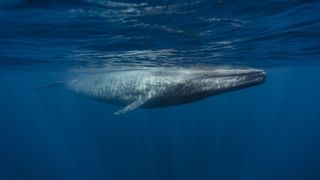
No, blue whales aren't going silent off California. Here's why.
By Patrick Pester published
Reports of blue whales going silent off California don't reflect the findings of a recent study.

1,100-year-old Viking hoard reveals raiding wealthy only 'part of the picture' — they traded with the Middle East too
By Patrick Pester published
Researchers have found that the Bedale Viking hoard contains silver from Middle Eastern coins, highlighting that the Vikings profited from long-distance trade networks and brought this imported silver with them when they settled in England.
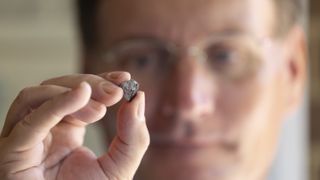
Meteorite that crash landed through Georgia man's roof is 20 million years older than Earth, scientists say
By Patrick Pester published
Researchers have analyzed the McDonough meteorite, which crashed through a man's home in June, and determined that it is older than our planet.
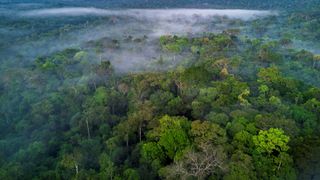
What are the largest rainforests in the world?
By Patrick Pester last updated
Rainforests are home to half of the world's plant and animal species. Here are the five largest rainforests in the world.
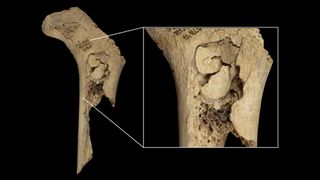
Stone Age family may have been cannibalized for 'ultimate elimination' 5,600 years ago, study suggests
By Patrick Pester published
Researchers have found cannibalized human remains from at least 11 people in El Mirador cave in northern Spain, suggesting it was the site of a violent Neolithic clash 5,600 years ago.
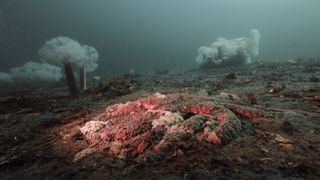
Mystery of why sea stars keep turning into goo finally solved — and it's not what scientists thought
By Patrick Pester published
A new study has found that the devastating sea star wasting disease is caused by a strain of bacteria from Vibrio pectenicida, which turns the marine creatures into goo.
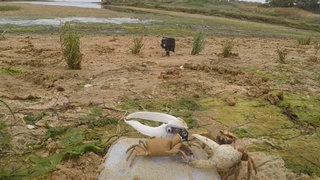
Watch robot crab 'Wavy Dave' get attacked in claw-waving contest with real crabs
By Patrick Pester published
Researchers have built a robot crab that can compete in claw-waving displays with real fiddler crabs, but "Wavy Dave" doesn't always come out unscathed.
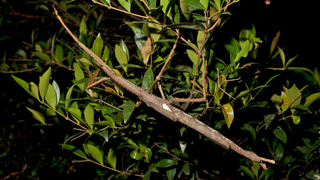
Creepy new giant insect may be the heaviest ever recorded in Australia
By Patrick Pester published
Researchers have discovered a giant stick insect living at high altitude in tropical North Queensland. Acrophylla alta is around 16 inches long and a strong contender for Australia's heaviest recorded insect.
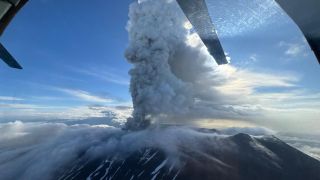
Dormant volcano erupts in Russia for first time in around 500 years, days after magnitude 8.8 megaquake
By Patrick Pester published
Krasheninnikov volcano has erupted on Russia's Kamchatka Peninsula. This is the second volcano to erupt in the region following the magnitude 8.8 megaquake on July 30.
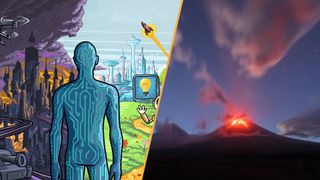
A magnitude 8.8 megaquake and whether we should — and can — stop AI
By Patrick Pester published
Science news this week Aug. 2, 2025: Our weekly roundup of the latest science in the news, as well as a few fascinating articles to keep you entertained over the weekend.
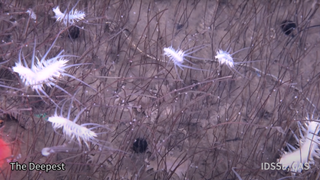
First-of-its-kind footage captures bizarre sea creatures flourishing in extreme depths of the ocean
By Patrick Pester published
Scientists have filmed odd communities of life flourishing deeper in the ocean than ever before. The chemosynthesis-based life-forms get their energy from chemical reactions, powered by gases seeping out of faults on the seafloor.

4,000-year-old handprint discovered on ancient Egyptian tomb offering
By Patrick Pester published
Researchers have unveiled an ancient Egyptian handprint that was left on a soul house tomb offering 4,000 years ago.
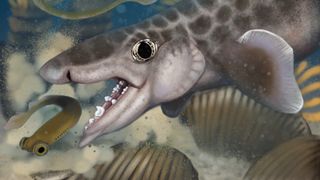
Ancient shark discovered deep inside world's longest cave system
By Patrick Pester published
The National Park Service has announced another ancient shark discovery at Mammoth Cave in Kentucky. The latest find, named Macadens olsoni, had a unique curved row of teeth and lived around 340 million years ago.
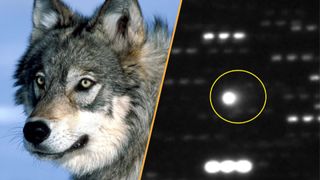
Wolves help restore trees in Yellowstone and the largest interstellar object ever seen
By Patrick Pester published
Science news this week July 26, 2025: Our weekly roundup of the latest science in the news, as well as a few fascinating articles to keep you entertained over the weekend.
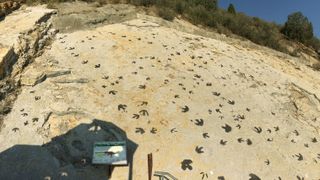
T. rex relatives 'moonwalked' to attract mates, newfound dinosaur ‘mating arena' suggests
By Patrick Pester published
Researchers have identified a "mating arena" at Dinosaur Ridge where male theropods gathered during the Cretaceous period to display in front of females.
Get the world’s most fascinating discoveries delivered straight to your inbox.

